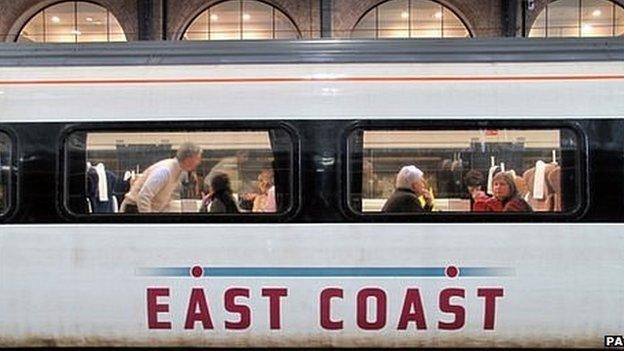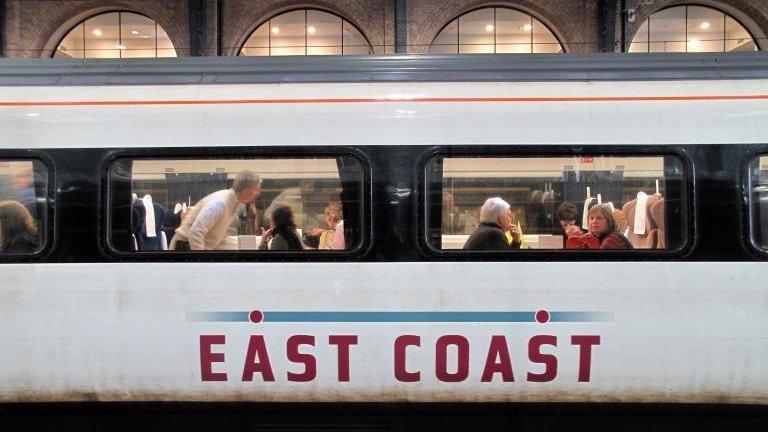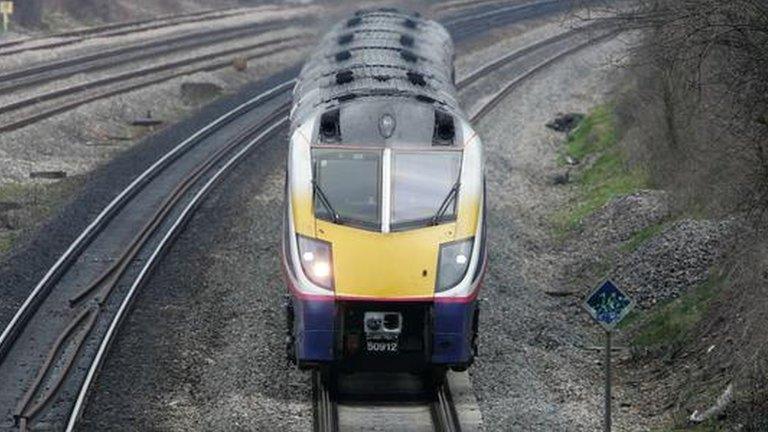Rail unions refused franchise review
- Published

The East Coast franchise has been run by the government since 2009
Unions have failed in a bid to force a judicial review of the government's process of awarding rail franchises including the East Coast line (ECL).
The RMT, Aslef and TSSA were refused permission to seek a ruling that the consultation process for the ECL and Thameslink franchises was flawed.
A judge ruled their case is "unarguable".
The Department for Transport said the decision "endorsed the government's approach".
Unions have accused the government of "rushing through" privatisation ahead of next year's election.
High test
Lawyers for the unions contested it was unfair that the government was continuing to consult business interests about the franchises, but not unions or passenger groups.
But Mr Justice Cameron, sitting at the High Court in London, said unions were essentially seeking "re-consultation" and had failed to meet "the very high test" for a judicial review.

East Coast Facts
Length of line: 393 miles (London to Edinburgh)
Services: 155 a day
Employees: 2,914
Passenger journeys: 19.1m a year
Number of stations: 53
Revenue: £692m (2012-3)
Profit: £183m (2012-3)
Punctuality and reliability: 89% (October 2012-3)

An RMT spokesman said: "We will be studying the judgment carefully with our sister rail unions and considering whether to appeal against this decision."
He said the franchises were "worth billions of pounds and it is completely wrong that neither the taxpayer, passengers or workforce have been properly consulted".
The East Coast franchise is due to start in February 2015 and is expected to run for a maximum of 11 years.
FirstGroup has been shortlisted to run the franchise, along with a joint bid from Eurostar and French firm Keolis, and another from Virgin and Stagecoach.
The line has been publicly run since 2009 - by Directly Operated Railways, an arms-length company overseen by the Department for Transport - after National Express handed back the franchise amid financial problems.
A Department for Transport spokesman said: "This decision has yet again endorsed the Government's approach to rail franchising competitions. We are continuing to agree deals that will bring hundreds of new trains and thousands more seats for rail passengers, generating billions for the taxpayer."
- Published7 April 2014

- Published17 January 2014

- Published11 July 2013
